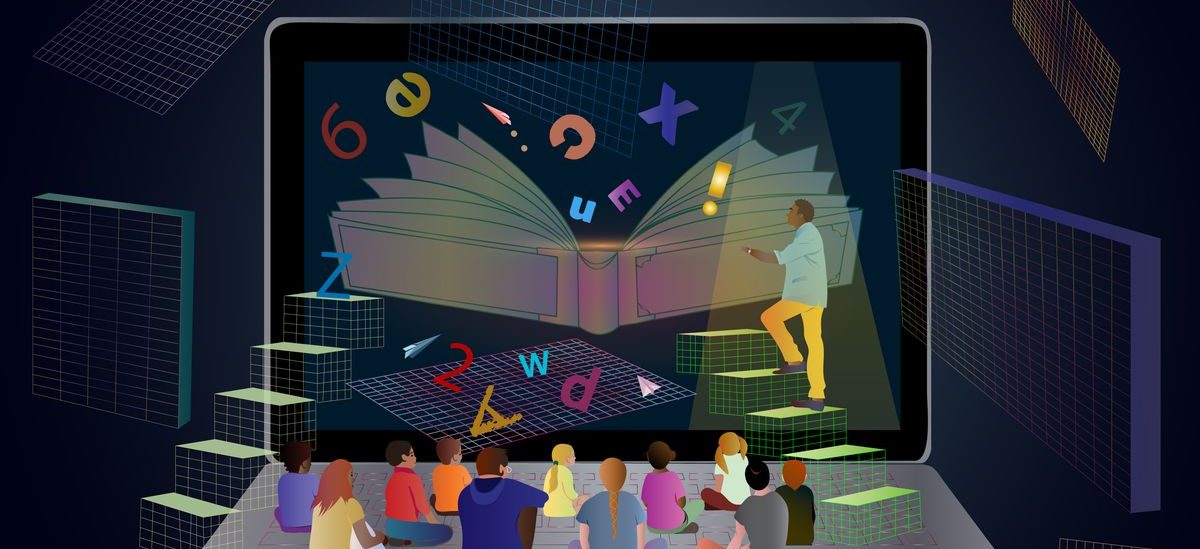Students across the world were faced with a strange new reality during 2020: learning during a pandemic. Colleges had to quickly pivot to fully remote teaching as students moved from dorms, back to their homes. Students from kindergarten to 12th grade also had to deal with these sudden changes as teachers and administrators figured out how to finish out a school year like no other. Aching to return to “normal,” many students wanted in-person learning for the 2020 – 2021 school year. However, a full return was not possible in most places, so many schools adopted two different learning plans—a hybrid learning plan and a remote learning plan. This is the approach that the Marblehead Public Schools system chose. Marblehead High School students in the hybrid program go into school for classes twice a week, and everyone has two remote classes on the afternoons of in-person days. On Wednesdays, there are shortened remote classes that students join from home. For remote learners, the plan looks different. While some classes are taught remotely by MHS teachers, other classes were farmed out to programs like Edgenuity and Virtual High School (VHS). Unfortunately, the promise of “high-caliber teaching and learning consistent with the Marblehead Public Schools experience” has not been met for many students in the remote program.
Let’s start out with the positives. Obviously, this school year is unlike any other we have seen, and it was difficult to completely change the way students learn, especially while needing to support two separate learning models. Students in the remote cohort have commended their teachers from MHS for their proficiency in teaching remotely. One MHS senior said, “[Teachers] have found a way to connect with us and still teach us. They ask how we are, what we are experiencing in remote learning, and how they could possibly make us feel better.” The strengths of the remote learning program lie largely with the MHS teachers leading remote classes or making accommodations to help students avoid Virtual High School and Edgenuity.
Ask almost any Marblehead Public Schools administrator, and they’ll tell you about how VHS is a reputable platform that has been used for many years and typically yields good AP test scores. Sounds great, right? The problem is, we have not met a single student at MHS who had a positive experience with VHS. One MHS junior said, “My experience with VHS has been one of outright confusion and unprofessionalism on their side, with the school acting as if they are unable to intervene.” With VHS, there is not the same format of open discussion that is at the core of almost every AP class at the high school. There is no way to challenge your own ideas because your ideas are the only ones you’re seeing. Additionally, the grading system used in some of the courses is faulty, emphasizing participation rather than proficiency. This means that as long as you turn in the assignments, you don’t see any constructive criticism on how to improve, which is an integral part of preparing for the AP exams in the spring. Many students have had to drop out of AP classes on VHS because the workloads are much greater than they are for students taking the classes with MHS.
Edgenuity also took a toll on students, both academically and mentally. This program gave students no outlet for any human interaction, and all grading was done automatically by AI. Students quickly realized that the answers didn’t matter, just the keywords did. With almost no effective way to comprehensively learn and retain the subject matter, the students suffered. Since Edgenuity is meant to be a blended learning program, students are supposed to be following an Edgenuity course with guidance from a teacher. One student in the remote cohort said, “Edgenuity assumes the presence of a teacher to assist with their curriculum, yet no teachers are provided to us. As we progress through Edgenuity’s curriculum, it becomes more and more clear how numerous the oversights made by the school were and how mishandled this was.” One example of oversight in the remote program is that students in Honors Physics on Edgenuity are expected to complete labs that require materials that most do not have readily available, while students in Honors Physics at MHS have few, if any, lab assignments. Physics is not the only Edgenuity course with curriculum different from the MHS class it is supposed to match. For example, freshman Honors English on Edgenuity did not even have all of the books required for freshman in MHS English classes. This not only hurts MHS students academically but builds a wall between the remote and in-person students. During this time, the last thing students want is to feel disconnected from their peers.
After all of this, can the Marblehead Public Schools administration do anything to fix the remote learning plan? Many remote students say yes. When asked what improvements could be made to the plan, a junior responded, “Just actually give it a little thought. Time and time again we bring issues to the administration that could have been anticipated months in advance with a little basic foresight.” Going forward, the Marblehead Public Schools need to listen to students in the remote program when they talk about their experiences instead of relying on statistics about test scores.
This school year has been difficult for everyone, but especially so for students in the remote cohort. Many students in this cohort choose to learn remotely to ensure their own safety or the health of their family members. Some just do not have the choice to return at all because of health concerns. Those seeking to protect their health during a pandemic should not be treated as second-class students because education should have to come at the expense of safety.

